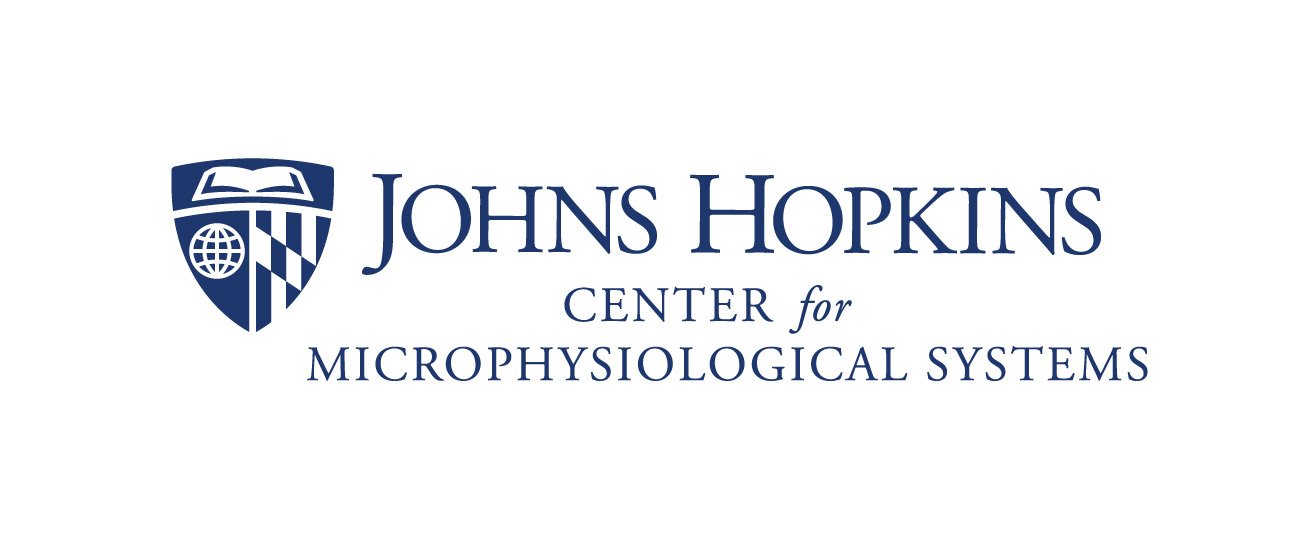Vision statement. Preclinical models reflecting normal and diseased human tissue biology are central to advancing medical science and clinical treatments. Over the past decade, advances in human stem cell biology, tissue engineering, and microtechnology have led to the development of microphysiological systems (MPS) – a platform technology to study human tissues under complex physiological conditions. The vision of the JHU-MPS Center is to build a hub for development and validation of predictive human stem cell-based, in vitro 3D organotypic models of human diseases and precision medicine applications.
Premise. According to the FDA, MPS are engineered in vitro platforms composed of primary cells, explants from tissues/organs, and/or stem cell-derived organoids of human origin, grown in a microenvironment that provides and supports biochemical/electrical/mechanical responses necessary to model specific properties that define organ or tissue function and/or disease. MPS technology development in the US has garnered wide support from the National Center for Advances of Translational Sciences (NCATS), the FDA, DARPA, NASA, and many industries. For example, MPS technology has revolutionized preclinical toxicology, created donor-matched multi-organ models of up to 10 different tissues and served as a platform for discovering fundamental pathogenesis mechanisms and testing potential therapies for COVID-19.
Significance. Today, leading biomedical research institutions and governments worldwide are racing to implement human MPS research programs to support their strategic goals. Through university-wide joint research and development, the JHU-MPS center can provide the research community with state-of-the-art technologies to recreate complex normal and diseased human biology and thus support the university’s mission to solve fundamental questions about the mechanisms, prevention, and treatment of disease.

